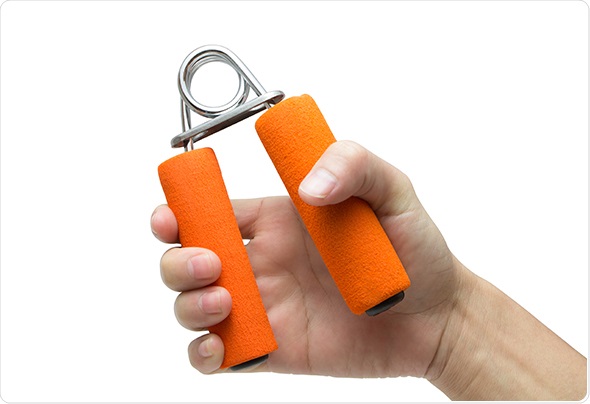The strength of a person’s hand-grip could be an indicator of their cardiovascular risk, suggest findings from a major study published in The Lancet.
The research, which included almost 140,000 people from 17 countries found that having a weak grip strength was associated with an increased risk of heart attack, stroke and shorter survival.
 Shutterstock.com / bluebloodbkk
Shutterstock.com / bluebloodbkk
The authors of the study say grip strength was a stronger predictor of death than systolic blood pressure and that a grip test may provide a simple and cost-effective way of identifying people at high risk of heart attack or stroke.
A grip test measures muscular strength and a reduced muscular strength has previously been associated with premature death, illness and disability. However, until now, research into the use of a grip test for predicting cardiovascular disease and survival has been limited.
For the current study, lead author Darryl Leong (McMaster University, Canada) and colleagues tested the grip strength of 139,691 participants (aged 35 to 70 years) from The Prospective Urban-Rural Epidemiology (PURE) study. Grip strength was tested at baseline using a Jamar dyamometer and the participants were followed for a median of four years. Grip strength was defined as the force exerted when a person squeezes an object as tightly as possible in their hands.
The researchers report that for every 5kg decline in grip strength, there was a 16% increase in risk of death from any cause; a 17% increase in risk of cardiovascular death and a 17% increase in risk of non-cardiovascular mortality. For heart attack and stroke, the increases in risk were 7% and 9%, respectively. These relationships remained even after adjusting for other risk factors for mortality and heart disease such as education level, age, physical activity level, employment status, alcohol intake and tobacco use.
Furthermore, the team found that grip strength proved to be a better predictor of all cause death including death from heart disease, than systolic blood pressure, which has previously been regarded as a robust indicator of death risk.
“Grip strength could be an easy and inexpensive test to assess an individual’s risk of death and cardiovascular disease,” says Leong.
“Further research is needed to establish whether efforts to improve muscle strength are likely to reduce an individual’s risk of death and cardiovascular disease,” he adds.